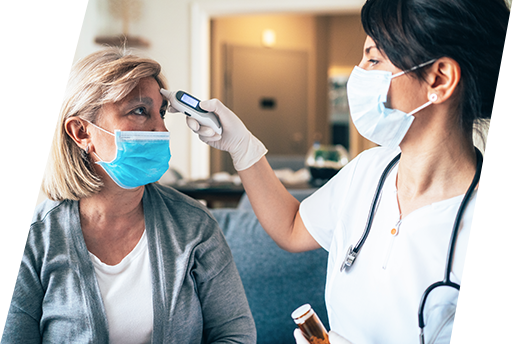Leah Perez
VP of Hire Up Healthcare
February 27, 2023
So you’ve been seeing all of the hype surrounding travel healthcare professionals the last few years and it’s peak your curiosity. Should I? How do I? How does it work? What are the pros/cons? Where do I even start?
Well, say no more! I hope this guide on how to bust that door open that you’ve been peeking through will be helpful for you.
Step 1: Do some research and make some decisions
Where do you want to go? Based on your current certifications, you should choose some areas of the US that you are open to traveling to. Big city? Rural communities? East/West/North/South? Beach? Mountains? Hot/Cold? Sun/Snow?
What do you hope to achieve by being a traveler? Money? Travel? See/experience new areas? Experience? If money is the goal, then you can research which states are currently paying the most by a simple google search. Make sure you include your specialty and the current year for the most up-to-date information (it changes often).
It’s important to decide on where you are open to and what your goals are before you start the process.
Once you do these things, you can move to the next step: Certifications.
Step 2: Licensing and Certifications
Do you have the proper certifications for your specialty and are they valid for the locations that you are wanting to travel to? Many licensed clinical positions require a specific certification for the State that you will be traveling to. For example, if you are a Registered Nurse, you could have a State license or a Compact License. A Compact License will allow you to cross some state lines with no further license. Other States won’t allow you to work in that state unless you have their licensure or unless you have applied/received a temporary license while your application processes. Some states have temporary or Emergency licenses, but you’d have to research and see which states are currently accepting an emergency credential. Some facilities will accept out of state licenses, while others will not. You can find the latest information on this on sites such as Nursing.org and other nursing sites. Google is also your friend.
Does your specialty require additional certifications? Are they valid and not due to expire in the next 6 months? If you hold a certification that is due to expire, it’s best to renew before you start traveling. If you don’t, and it expires while on a contract, the facility will cancel your contract with no further financial obligation to you. Also, many specialties require additional certifications. Examples of others that may be required include BLS, CPR, ACLS, PALS, etc. There are dozens of others that could be required, depending on specialty and type of facility. Do your research and get those certifications in hand prior to starting your travel journey. Also be prepared (time wise and financially) to get them quickly, should the facility require it.
Once your licenses and certs are valid and ready, you can move to the next step: Taxes
Step 3: Taxes and determining your “tax home”
Many travel contracts include tax-free money. It’s important for you to understand how it works so there’s no surprises at tax time. Do your research and contact your tax professional to discuss further.
Step 4: Find a Travel Staffing Agency and Recruiter
There are MANY different agencies out there that all offer different things. It is very important to check agency websites, reviews and join Facebook and other social media groups to network with others and ask questions. Each agency is different as to what is offered. Some things to ask yourself while shopping for an agency:
- Do you want to have your agency handle your travel arrangements or do you want to? Ask each agency if they have a department that handles that or if they offer the freedom for you to do it yourself.
- Do you want an agency to include housing/transportation or do you want to handle it? Ask each agency what their policy is.
- What benefits do you need? If you need benefits, ask about what they offer for medical, dental, vision, 401K, etc.
- Do you need help with travel reimbursement? If so, find out what they offer.
- What’s their referral bonus look like?
Weigh the pros and cons of each agency you research. Again, each agency is different depending on their size and years in business. A well-established, large agency may offer a bigger variety of locations and pay packages but lack personal attention and require long wait times for answers. A smaller agency may have more limited locations but give you the time and attention that you deserve. It’s important that you have a high sense of trust and comfort with your recruiter and agency.
If you have questions or want to talk to someone from our team further about traveling, call us! 559-931-9011 We pride ourselves in being transparent and taking everyone’s call the first time!! You will NEVER wait on hold on the phone for hours with us!!
Leah Perez, VP of Healthcare

As the Vice President of Hire Up Healthcare Leah focuses on the national level clients. Leah has over 16 years of recruiting experience in various industries from medical/clinical to administrative/accounting, all of which has launched her to being one of the most well-respected staffing leaders in California. Clients and candidates would describe her as urgent, ethical, and most importantly she takes the time to understand her clients needs so she can properly assist them. Leah would love to speak with you so she can help your business reach new heights.






